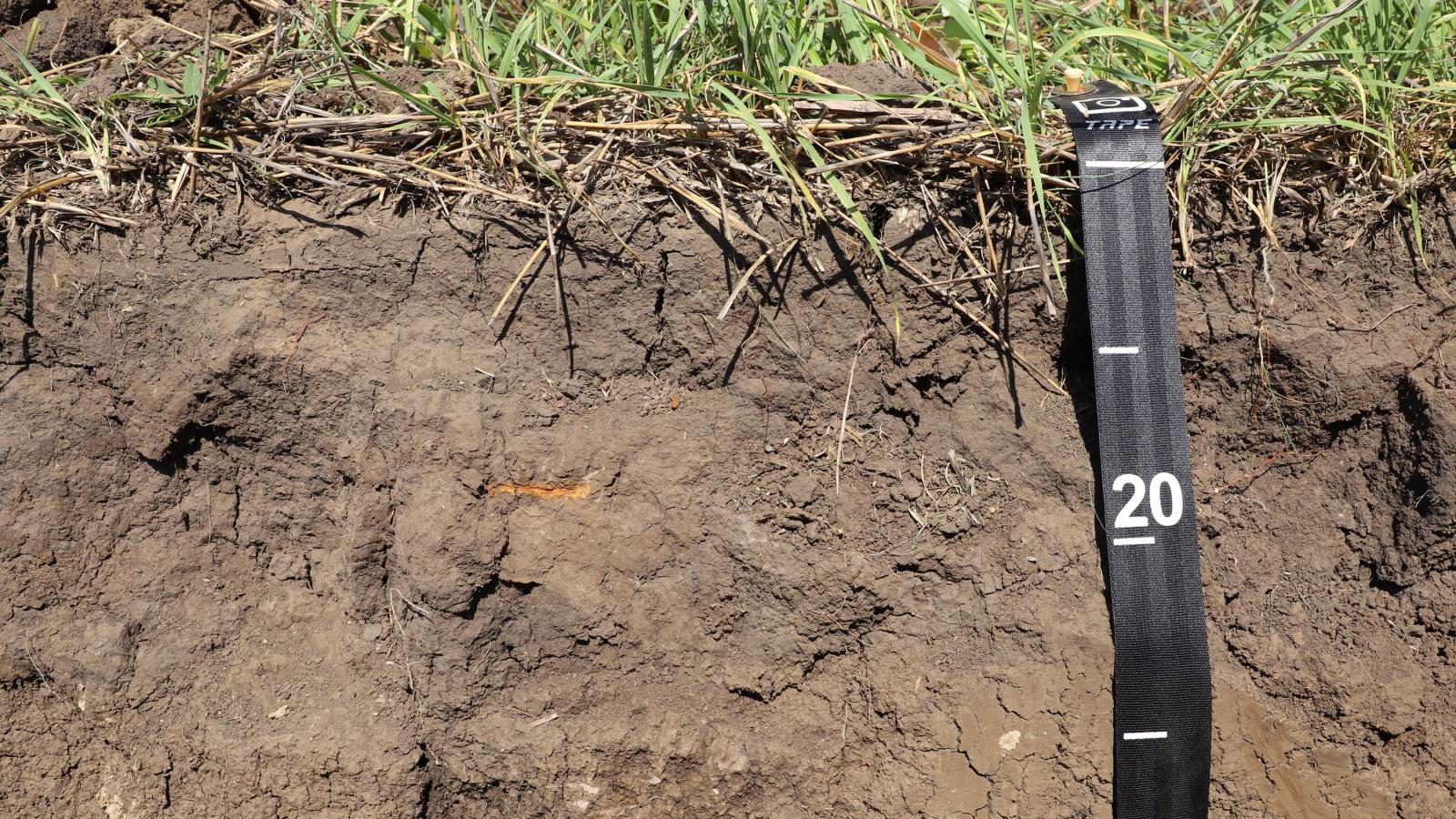The Soil and Water Sciences Specialization prepares students to understand, manage, and improve water and soil management and agro-ecosystem services.
Learning Outcomes
SOIL
Explain and integrate soil chemical, biological, physical, and pedogenic concepts and methods to identify and quantify their impact on soil management and agro-ecosystem services.
WATER
Integrate concepts of water quantity and quality as a reflection of land management, mineralogy, and chemical as well as biological processes and of water movement, storage, and supply across terrestrial and aquatic ecosystems in agricultural landscapes.
SOIL WATER MANAGEMENT
Gain and integrate knowledge of soil and water required to select, design, and implement holistic soil-water-plant management strategies that ensure efficient and sustainable productivity of biodiverse agro-ecosystems and long-term protection of natural soil resources.
Foundational or Core Courses
Students specializing in Soil and Water Sciences select classes from each of the three Core Elective groups as guided by the major advisor, student committee and IDP.
Soil Core Electives Courses
M.S. minimum 3 cr, Ph.D. minimum 6 cr
- AGRO 831: Spatial Variability in Soils (2cr)
- AGRO 855 (online only): Soil Chemistry & Mineralogy (3 cr)
- AGRO 860: Soil Microbial Ecology (3 cr)
- AGRO 872: Applied Soil Physics (3 cr)
- NRES 877: Great Plains Field Pedology (4 cr)
- AGRO 985: Soil Carbon and Nitrogen Dynamics (online optional) (3cr)
Writing, Speaking and Teaching
- AGRO 803: Scientific Writing and Communication (3cr) (recommended)
- CBIO 844: Professional Development (1cr)
- Teaching Assistant (encouraged)
- AGRO 899, 999: Masters, Ph.D. Thesis
- Departmental seminar (recommended)
- AGRO 991: Seminar Presentation and Evaluation (required)
- AGRO 992: General Seminar (required)
Statistics
M.S. and Ph.D. (min, 4 cr from STAT 801 or STAT 802 or demonstration of previous equivalent)
- STAT 801: Statistical Methods in Research (4cr)
- STAT 802: Design and Analysis of Research Studies (4cr)
Water (core electives)
M.S. minimum 3 cr, Ph.D. minimum 6 cr
- BIOS/GEOL 844: Earth and Environmental Microbiology (3 cr)
- NRES 853: Hydrology (3 cr)
- NRES 875: Water Quality Strategy (3 cr)
- NRES 879: Hydroclimatology (3 cr)
- AGEN 954: Watershed Modeling (3 cr)
- NRES 965: Managed Aquatic Ecosystems (3 cr)
Soil & Water Management (core electives)
M.S. minimum 3 cr, Ph.D. minimum 6 cr
- AGRO 807: Plant Water Relations (3cr)
- NRES 815: GIS for Agriculture and Natural Resources (4 cr)
- AGRO 824: Plant Nutrition and Nutrient Management (online optional) (3cr)
- AGRO 835: Agroecology (3cr)
- NRES 851: Soils, Water, Environmental Chemistry (4 cr)
- MSYM 852: Irrigation Systems Management (3 cr)
Courses for sub-specialization and customization (electives):
Students then customize career track by selecting Elective classes guided by the major advisor, student committee, and IDP.
Water (electives)
- GEOL/NRES 818: Chemistry of Natural Waters (3 cr)
- NRES 859: Limnology (4 cr)
- NRES 868: Wetlands (4 cr)
- NRES 881: Stream & River Ecology (4 cr)
- GEOL 988: Groundwater Modeling (3 cr)
- AGEN 954: Watershed Modeling (3 cr)
- AGEN 957: Modeling Vadose Zone Hydrology (3 cr)
- GEOL 988: Introduction to Groundwater Modeling (3 cr)
Soil & Water Management (electives)
- AGRO 819/NRES 820: Applications of Remote Sensing in Agriculture and Natural Resources (4 cr)
- AGRO 836: Agroecosystems Analysis (3cr)
- AGEN 841: Animal Waste Management (3 cr)
- AGRO 849/AG*Idea Program: Rangeland Resources Watershed Management (3 cr)
- AGEN 853: Irrigation & Drainage Systems Engineering (3 cr)
- AGEN/MSYM 854: Irrigation Laboratory and Field Course (3 cr)
- MSYM 855: Advanced Irrigation Management (3 cr)
- CSCE 872: Digital Image Processing (3 cr)
- Programming courses at CSCE
Students free to select courses from one or both sub-specialization groups or to choose no sub-specialization. Students may also select classes from other graduate specializations. Core Elective Course guidelines may be waived with documentation of previously successfully completing equivalent courses, workshops, or short courses and/or demonstration of equivalent proficiencies pertaining to the student’s educational and career goals and will be identified as such in the IDP as deemed appropriate by the Student’s Supervisory Committee.
